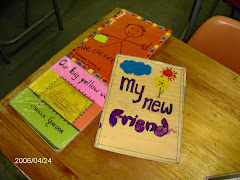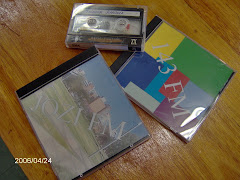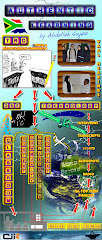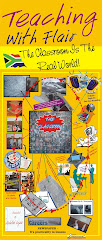Al-Huda
March 2006
Article by Abdullah Sujee
Title: RIGHT OF DIGNITY VERSUS FREEDOM OF SPEECH….
The Muslim today needs to read the sirah/history of Muhammad (S.A.W) to effectively realise that the noble Messenger was and is. This would enable the Muslim to know that he/she has a glorious example to follow yet, has demeaned that example in many ways save to say that those who emulate his (S.A.W)’s example are branded as terrorist, fundamentalist or radical Islamist. Therefore, we need to introspect on ourselves in relation to Muhammad (S.A.W) asking how the right of dignity overweighs freedom of expression when we want to say what we want of him (S.A.W).
The cartoons that depicted Muhammad (S.A.W) in the above branded categories by the Danish cartoonist, reflects the distortion of human rights. This distortion makes one aware of the double standards applied on a universal platform such that cartoons that were drawn of Nabi Isa (A.S.), Jesus, were not printed for fear that it would inflame the Christian world. This shows that we need to apply our MAN-MADE-LAWS with more precision and fairness such that we qualify ourselves to be above the instinctive behaviour of animals. Therefore, let us indulge in what a non-Muslim says about Muhammad (S.A.W):
Michael H.Hart in his book titled: The 100 of the Most Influential Persons in History, said:
My choice of Muhammad to lead the list of the world’s most
influential persons may surprise some readers and may be
questioned by others, but he was the only man in history who
was supremely successful on both the religious and secular levels. Of humble origins, Muhammad founded and promulgated
one of the world’s great religions, and became an immensely
effective political leader. Today, thirteen centuries after his death, his influence is still powerful and pervasive.
The question that begs the mind now is: “How can another non-Muslim recognise Muhammad (S.A.W) so greatly?” The answer is not with you and me but, with the representation of Islam and Muslims in the media, the way we as Muslims represent ourselves and the way people view us. In all of this, on a general platform, people have taken the liberty of using their freedom of expression against the right of dignity, to brand, demean or just insult Muslims.
How often have you heard or read about a Muslim terrorist, a Muslim Fundamentalist so on and so forth but never of a Christian terrorist, a Jewish radical, radical Judaism, radical Hinduism so on and so forth? The answer – Never! This labelling process through the strategic use of sensationalisms, dramatisations, innuendos, irony, satire and sarcasm in the media has established a stereotypical view of who and what represents a Muslim that the non-Muslim must dislike or hate as opposed to those Muslims they should ‘like’. The cartoons, from all that I have read about it, have reinforced the above labelling process such that it ignited the anger of Muslims and a great number of non-Muslims as well.
The anger we speak about vented out in mass marches, killings, sectarian violence in Nigeria, impasse of agreements in Palestine, death threats from Al-Qaeda and so much more unsavoury incidents that leave a lot to be desired. In all of this, the Muslim reaction in general made us fit the established mindset that we are reactionary, terrorists and fundamentalists yet, we are not. The South African response was very proactive and it engaged the media on their own terms using the constitution as a benchmark thus, setting a side all potential incidents of violent protests. In effect, Judge Muhammad’s decision was swift yet very logical – the right of dignity overweighs freedom of expressions focuses this article’s content.
In essence the right of dignity means that a person’s Allah given right to exist and to be respected has to govern our social interactions which in fact allow us to co-exist as different people. Allah shows us in the Holy Quran that HE has created us into different nations so that we understand each other (Surah 49:13) emphasising the very fact that every human is a dignified creation of Allah and has to be respected. When we choose to vilify a human’s dignity we automatically disrespect his/her belief system which gave him/her the will to want to live. In effect, in doing this, we shatter the human’s circle of companionship and camaraderie such that they would want to defend themselves from abuse. This is exactly what happened.
When Muhammad (S.A.W) was vilified, it automatically showed disrespect to Islam which is our belief system that shapes our faith in Allah – the only Being worthy of worship and is the reason why we do good deeds i.e. only to please Allah. Then when Islam was disrespected as a result of the cartoons, the Muslims’ role models, the Sahaba (R.A) were indirectly vilified thus shattering the nobility of their righteous actions in light of how we as Muslims are perceived by non-Muslims in general. In effect, we chose to defend ourselves in the way that we did so that we could restore the original dignity to Muhammad (S.A.W).
In all of the above, we see the cartoonist and the media as the antagonists and yes, in this case they are. However, have we not looked into our daily lives and found the many examples of we vilify Muhammad (S.A.W). To illustrate the point consider these real and true incidents in the years 2005/6:
On one hot day, a Muslim youngster walked into the masjid with a printed T-Shirt emblazoning a skull and some satanic image – how did this vilify the example of the prayer of Muhammad (S.A.W)?
On one happy day, the groom walked into the masjid for his nikah wearing a striking red kurta with white buttons – how did this vilify the example of the dressing of Muhammad (S.A.W.)?
On one rushed day, a Muslim man parked his car in the masjid’s parking area obstructing and inconveniencing so many people by coming out very late – how did this vilify Muhammad (S.A.W)’s example of common courtesy shown and practised to non-Muslims as well.
On one sunny day a girl Muslim walks out of the house wearing something so scant that a non-Muslim father and daughter comment “Couldn’t she wear anything at all?” – How did this vilify the example of modesty Muhammad (S.A.W)?
The examples can multiply but, we choose not to illustrate more save to say that:
We need to dignify Muhammad (S.A.W) by way of our freedom of expression allowed to us by Allah and then by how the constitution has given us latitude to express it! The nagging reality is – we have found reason not to identify with Muhammad (S.A.W) in our daily lives but with the stars of Hollywood and Bollywood. In effect, we only realise just how foolish we are, when our own very stars in the ‘woods’ vilify Muhammad (S.A.W). Therefore, we ‘rage against the dying of the light’ seeking to engage the world with ‘sound and fury’ but really, it ‘signifies nothing’ because; we will fizzle out into the screening of the next blockbuster on our plasmas.
On the other hand, the picture is not bleak at all. In the wake of all of this, there arose a kind of youth and a people from amongst the ummah who became more resolute in their obedience to Allah and HIS Messenger (S.A.W) such that they began to change their lives. These are too glorious to pen down save to say that they have reaffirmed with Allah that Muhammad (S.A.W) is the last and final Messenger and that they will aspire to live his lifestyle. This is something the media struggles to change and alter because the change so deep and sincere that death on his (s.a.w)’s example is preferred over life. This shows how freedom of expression is dignified.
So when you reflect on Michael Hart’s statement know that Muhammad (S.A.W)’s character is divinely protected because Michael is a non-Muslim and Allah made him see the light. The cartoonist on the other hand, is that person who Allah showed HIS wrath too because he isn’t living a peaceful life because of his own unsound actions. Therefore, we need to understand that, like the Quran is the sacred property of Allah to protect, Muhammad (S.A.W) who was and is the embodiment of the Quran is also divinely protected. In effect, our rightful, yet obtuse reaction in some instances were, in opinion, not really sound, needs to be emboldened by reading, understanding and practising the life pattern of Muhammad (S.A.W). Then, wouldn’t we be also protected? I think we would. The example is shown in the Sahaba (R.A) in that they emulated the example of Muhammad (S.A.W) and Allah then said about them in the Quraan “I am pleased with them and they are please with ME.”
In conclusion read this extract from Abdullah b.Abdul Muhsin at-Turki’s biography of Muhammad (S.A.W):
But I thought that the Messenger of Allah (~) would organize our
affairs (until) he was the last of us (alive). Allah has left His Book with you, that by which He guided His Messenger. If you hold fast to that, Allah will guide you as He guided him. Allah has placed
your affairs in the hands of the best one among you, the Compan-
ion of the Messenger of Allah (~), (whom Allah describes in the
Qur’an) “The second of the two when they were in the cave”, so
arise and swear allegiance to him.’ Thereupon the people swore al-
legiance to Abu Bakr as one body after the pledge in the hall.
Abu Bakr said after praising Allah, ‘I have been given author-
ity over you, but I am not the best of you. If I do well, help me,
and if I do ill, then straighten me up. Truth is a trust and false-
hood in treachery. The weak among you shall be strong in my eyes
until I secure his right, if Allah wills; and the strong among you
shall be weak in my eyes until I wrest the right from him. If a peo-
ple refrain from fighting in the way of Allah, Allah will disgrace
them. Whenever obscenity prevails among a people, Allah inflicts
upon them common affliction. Obey me as long as I obey Allah
and His Messenger (~), and if I disobey Allah and His Mes-
senger, you owe me no obedience. Stand up and perform prayer.
May Allah have mercy on you.’
The Burial of the Messenger of Allah (~)
When allegiance was sworn to Abu Bakr, men came to prepare
the Messenger of Allah (~) for burial on Tuesday. Abdullah b.
Abu Bakr and Husain b. AbduHah al-Fadi and Qutham, and Usa-
mah b. Zayd, and Shuqran freedman of the Messenger of Allah
(~)washed him. Ali pulled him on to his breast and Abbas and al-
Fadl and Qutham turned him over along with him. Usamah and
Shuqran poured water on him. They kept his shirt on while All
rubbed his body over the shirt without touching the Messenger’s
skin with his hand while saying, ‘I ransom you with my father and
my mother, how pure you are alive and dead!’ No part of the Mes-
senger’s body that is usually exposed when washing an ordinary
corpse was seen. (Abridgement of Sirat Ibn Hisham. The Biography of the Prophet Muhammad (S.A.W), page 307.by Abdullah b.Abdul Muhsin at-Turki
How does this touch you? If it shows you the true nature of the men around the Messenger (S.A.W) don’t you think you should get familiar with him (S.A.W)? Start today by reading about Muhammad (S.A.W). After all the command “READ” was the first published word from Allah to mankind.
If you are not reading, in opinion, you are vilifying the profound intellectual capacity of Muhammad (S.A.W).
“Read in the name of your Lord…” – Al –Quran.
Suggested Reading on Nabi Muhammad (S.A.W.)
Sirat Ibn Hisham. The Biography of the Prophet Muhammad (S.A.W) by Abdullah b.Abdul Muhsin at-Turki
Muhammad. A Mercy to all the Nations byAl-Hajj Qassim Ali Jairazbhoy.
Muhammad his Life based on the Earliest sources by Martin Lings.
Men Around the Messenger by Khalid Muhammed Khalid. (This book will make you realise the impact Muhammad (S.A.W) had on people that became those that Allah was and is pleased with.
Thursday, June 5, 2008
Subscribe to:
Post Comments (Atom)







No comments:
Post a Comment